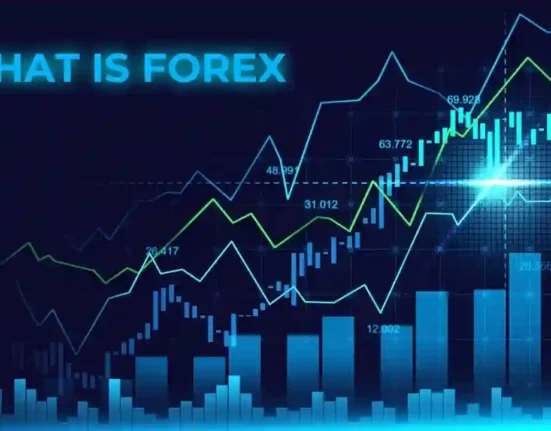In the realm of financial markets, the rise of automated trading has revolutionized the way trades are executed, offering unparalleled speed, efficiency, and scalability. Within this landscape, Forex (foreign exchange) trading stands out as one of the most active and dynamic arenas, where trillions of dollars change hands daily. While automated trading systems, often powered by sophisticated algorithms, promise increased profitability and reduced human error, they also raise important ethical considerations. In this article, we delve into the ethics of automated trading, focusing on the accountability of Forex robot algorithms and the implications for market integrity and investor protection.
The Rise of Automated Trading in Forex Markets
Automated trading, also known as algorithmic trading or algo trading, has become increasingly prevalent in Forex markets, driven by advancements in technology, access to high-speed connectivity, and the proliferation of quantitative trading strategies. Forex robot algorithms, programmed to execute trades based on predefined rules and parameters, now dominate a significant portion of trading volume, from institutional investors to retail traders.
The allure of automated trading lies in its ability to remove human emotion and bias from trading decisions, execute trades with lightning speed, and capitalize on fleeting market opportunities. However, as automated trading continues to proliferate, questions arise regarding its ethical implications and the accountability of Forex robot algorithms.
Ethical Considerations in Automated Trading
The ethics of automated trading in Forex markets revolve around several key considerations:
- Fairness and Market Integrity: Automated trading systems can execute trades with millisecond precision, potentially gaining an unfair advantage over human traders. High-frequency trading (HFT) strategies, in particular, raise concerns about market manipulation, front-running, and price manipulation. Ensuring a level playing field and maintaining market integrity is essential to preserving trust and confidence in financial markets.
- Transparency and Accountability: The opacity of Forex robot algorithms poses challenges for regulators, investors, and market participants seeking to understand their behavior and impact on market dynamics. Lack of transparency can hinder efforts to detect market abuse, identify systemic risks, and hold algorithmic traders accountable for their actions. Ensuring transparency and accountability in automated trading systems is crucial for fostering market trust and regulatory compliance.
- Risk Management and Investor Protection: Automated trading systems, while offering the potential for increased profitability, also pose risks to investors, including rapid price fluctuations, algorithmic errors, and system failures. In the absence of effective risk management mechanisms, investors may be exposed to significant financial losses and operational disruptions. Protecting investors from undue risks and ensuring responsible use of automated trading systems is paramount for maintaining market stability and investor confidence.
Ensuring Accountability in Forex Robot Algorithms
To address the ethical challenges associated with automated trading, particularly in Forex markets, efforts must be made to enhance the accountability of Forex robot algorithms. Several key strategies can help achieve this goal:
- Regulatory Oversight: Regulators play a critical role in overseeing automated trading activities, setting guidelines, and enforcing compliance with relevant laws and regulations. Regulatory frameworks such as the Markets in Financial Instruments Directive (MiFID) in Europe and the Commodity Futures Trading Commission (CFTC) in the United States provide guidelines for algorithmic trading practices and promote market integrity.
- Algorithmic Transparency: Forex robot algorithms should be designed and implemented with transparency in mind, enabling regulators, investors, and market participants to understand their logic, behavior, and impact on market dynamics. Algorithmic transparency fosters trust, accountability, and regulatory compliance, enhancing market stability and investor protection.
- Independent Oversight and Audit: Independent oversight and audit mechanisms can provide an additional layer of accountability for Forex robot algorithms. Independent auditors can assess the robustness, fairness, and compliance of algorithmic trading systems, identify potential risks and vulnerabilities, and recommend corrective actions to mitigate them.
- Ethical Design Principles: Forex robot algorithms should be developed and deployed in accordance with ethical design principles, taking into account considerations such as fairness, transparency, accountability, and investor protection. Ethical design practices can help mitigate the risks of algorithmic bias, market manipulation, and unintended consequences, promoting responsible and sustainable automated trading practices.
Conclusion
As automated trading continues to reshape the landscape of Forex markets, ensuring accountability in Forex robot algorithms is essential for preserving market integrity, investor protection, and regulatory compliance. Ethical considerations such as fairness, transparency, and risk management must guide the development, deployment, and regulation of automated trading systems. By adopting regulatory oversight, algorithmic transparency, independent audit mechanisms, and ethical design principles, stakeholders can promote responsible and ethical automated trading practices, fostering trust, stability, and confidence in financial markets. In an era of rapid technological innovation and evolving market dynamics, upholding ethical standards and accountability in automated trading is imperative for building a resilient and sustainable financial system.





